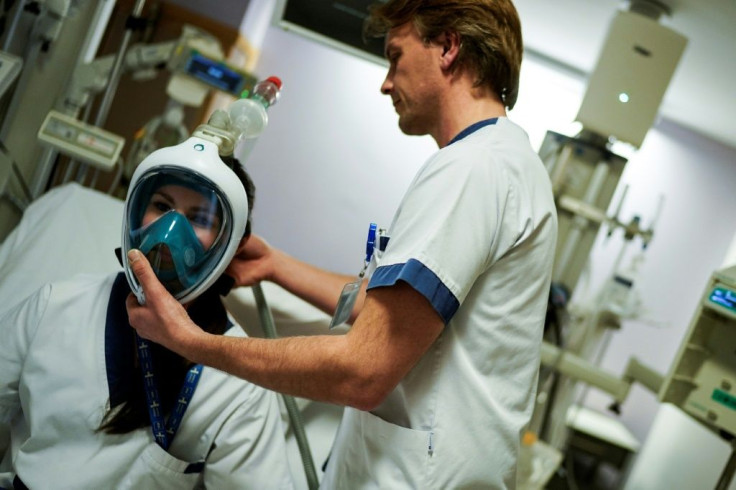Philips Respiratory Machine Recall 2022: Plastic Contamination Prompts Another Recall Of BiPAP Devices

Philips Respironics has issued another recall for a number of bi-level positive airway pressure machines, also known as Bilevel PAP, BiPAP, or BPAP devices, that may be contaminated with plastic that could cause the machines to fail and suddenly stop working.
The recall isn't related to the June 2021 recall that affected as many as 5.5 million sleep apnea and ventilator machines due to foam that could break down, and be breathed in. But some of the devices involved in this recall were part of the initial recall.
According to the recall notice from the Food and Drug Administration, the Philips Respironics BiPAP machines may contain a plastic that could "release certain chemicals of concern called volatile organic compounds (VOCs). The plastic may also cause the machine to fail and stop working suddenly during use."
Inhalation of the VOCs could lead to headaches, dizziness, irritation in the eyes, nose, respiratory tract, and skin, hypersensitivity reaction, nausea or vomiting, or toxic and cancer-causing effects. If it causes the machine to fail and stop working it may also lead to serious injury or even death, the FDA said.
No reports of injury or death have been associated with the recall to date.
As many as 386 machines in the U.S. are affected by the recall, including the models: A-Series BiPAP A30 (Ventilator), A-Series BiPAP A40 (Ventilator), A-Series BiPAP V30 (Auto Ventilator), and OmniLab Advanced+ from Philips.
The A-Series BiPAP A30 and A40 models were a part of the June 2021 recall.
Philips Respironics' BiPAP machines are used for people with obstructive sleep apnea syndrome to help keep their airways open during sleep as well as for those individuals that have respiratory insufficiency or respiratory failure.
In a statement to MedTechDive, Steve Klink, a Philips spokesperson, said, "Philips Respironics is advising customers to halt use of affected devices and return them to Philips Respironics for repair or replacement."
Philips distributed the recalled respiratory devices in the U.S. from Aug. 6, 2020 to Sept. 1, 2021.
Customers were notified of the plastic contamination issue with a recall notice sent by mail on Aug. 26.
© Copyright IBTimes 2025. All rights reserved.





















